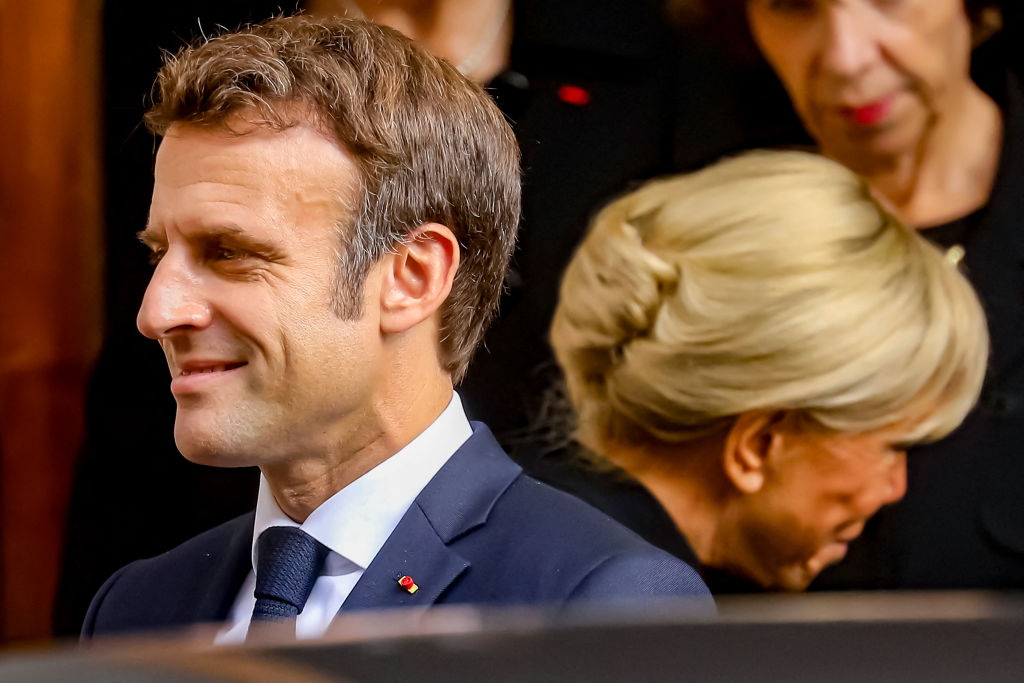
This is not an easy time to lead a government. Right-wing challengers have taken power in Italy and Sweden. Brazil’s Jair Bolsonaro was defeated by a leftist former President. Rishi Sunak is Britain’s third Prime Minister in seven weeks. Joe Biden’s Democrats are bracing for a tough election night next month. All over the world, democracies face anti-incumbent anger.
In France, meanwhile, President Emmanuel Macron had hoped to buck this trend. In April, he became the first chief executive to win re-election in his country in 20 years. Last year’s retirement of German Chancellor Angela Merkel provided him an opportunity to act as Europe’s lead statesman. His idea for a 44-nation “European Political Community,” which held its first meeting in October, is meant to give Europe a strategic unity (and independence of action from Washington) that Macron and many of his French predecessors have dreamed of for decades—even in the face of Russia’s invasion of Ukraine.
Yet once again Macron finds himself bogged down with domestic political resentments. Right-wing parties point an accusatory finger at his globalist vision of France’s future. Politicos and activists on the left say he’s a king who cares nothing for the struggles of working people.
The most recent confrontation comes from strikes called by the militant trade group Confédération Générale du Travail (CGT), the second largest of France’s trade federations. The CGT has called a one-day strike, with more to follow in coming weeks, across multiple economic sectors, to protest the government’s unwillingness to help the public cope with the country’s high cost of living. The CGT is especially furious that the government used a constitutional maneuver to force striking oil-refinery workers back on the job earlier in October.
There is nothing new about French Presidents and Prime Ministers faced with fist-shaking union members or with public support for their disruptions. Macron still carries political scars from his battles with the gilets jaunes (yellow vest) protesters during his first tenure. But France’s troubles have only grown since then. In fact, the country now faces its worst energy crisis since the 1970s.
Today France draws nearly 70% of its electricity from aging nuclear power plants. At the moment, 26 of the country’s 56 reactors are off-line for maintenance, either routine or a result of corrosion, leaving output at its lowest point since the 1990s. Vladimir Putin’s invasion of Ukraine made that problem worse when Macron led efforts in Europe to end the continent’s dependence on energy exports from Russia. This summer, Prime Minister Élisabeth Borne warned that French homes could face rolling blackouts at times this winter. Striking French workers then compounded the electricity problem further with periodic strikes that have slowed repairs at 17 nuclear reactors. A cold, dark winter won’t make Macron or Borne more popular.
But Macron’s bigger fights with domestic rivals lie ahead. To strengthen his country’s balance sheets without raising taxes, and without a parliamentary majority to back him, France’s ambitious 44-year-old President has signaled plans to move the full-benefit retirement age for many workers from 62 to 64 beginning next spring over a period of four years. If he’s serious—and pension reform is so closely identified with his vision from France’s future that it’s hard to imagine he would drop it—he will have to resort to a hyper-controversial constitutional power called Article 49.3 that could allow him to push the plan through Parliament without a vote.
If Macron and Borne take this path, Parliament may well vote no-confidence in her government, forcing early elections that could leave Macron with a new Prime Minister, one who opposes his reform. His rivals mean for the current round of strikes to serve as a warning shot of bigger confrontations to come. Macron will have to proceed very carefully, and at a time when conditions in France, and in Europe, will only make his job more difficult.
More Must-Reads From TIME
- The 100 Most Influential People of 2024
- Coco Gauff Is Playing for Herself Now
- Scenes From Pro-Palestinian Encampments Across U.S. Universities
- 6 Compliments That Land Every Time
- If You're Dating Right Now , You're Brave: Column
- The AI That Could Heal a Divided Internet
- Fallout Is a Brilliant Model for the Future of Video Game Adaptations
- Want Weekly Recs on What to Watch, Read, and More? Sign Up for Worth Your Time
Contact us at letters@time.com